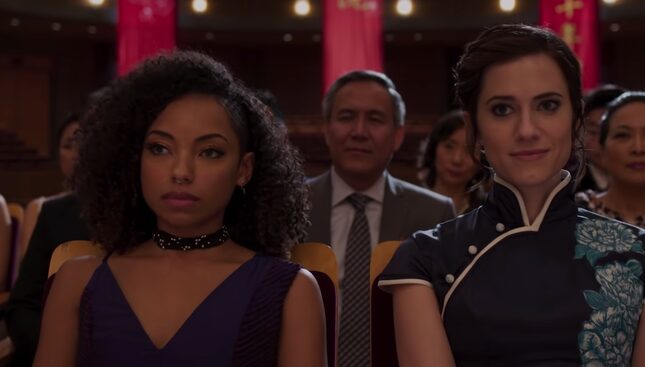
Screenshot: Netflix
In a 2018 essay for Vulture, critic Angelica Jade Bastien described horror as “the underlying sense of fear, and the exploration of this primal response on personal, cultural, and existential levels.” It’s a definition that illustrates the through-line between disparate stories like Hereditary and Annihilation, but also explains the appeal of rape-revenge narratives as a kind of existential body horror, an invasion of a non-consenting body by another person. But as with so many stories that linger on women’s pain, the rape-revenge genre tends to sensationalize the brutality women suffer “to justify stereotypically male pleasures of hyperbolic violence.” The Perfection, the new Netflix film from director Richard Shepherd falls right into that trap, unsuccessfully attempting to subvert the stories that came before it by adding women to its list of antagonists.
The film’s first act entails an elaborate arc wherein Charlotte (Allison Williams) seduces, poisons, mutilates, and abandons Lizzie (Logan Browning), the young woman who has replaced her in their shared mentor Anton’s (Steven Weber) esteem. The sequence is thrilling, but shocking in how eagerly it embraces the kind of body horror that makes most audiences squeal; there is vomit, feces, a hallucination, and an amputation. The viewer assumes that Charlotte’s vicious betrayal is an act of deranged jealousy by a rejected pupil, but soon learns the truth: Anton “trains” his young, pliable, female students through habitual rape within the confines of a soundproof performance room at the music school they both attended. The violence is punishment for failing to reach what he terms “the perfection.” Charlotte’s decision to drive Lizzie to a vicious dismemberment is merely her attempt to make her so disfigured that Anton will reject her, forcibly and permanently separating her from her abuser.
This reveal attempts to justify the additional pain that Lizzie suffers at Charlotte’s hands, but instead it feels like an attempt to layer thin, feminist motivations over an absolutely deranged act. Lizzie, like Charlotte, is a victim of Anton’s abuse. By drugging her and driving her to disability, Charlotte appoints herself as master of Lizzie’s mind and merely perpetuates her suffering, further punishing her for the crime of being a victim. In a flashback, Charlotte rationalizes this disfigurement as a necessary evil because of how thoroughly Anton has brainwashed Lizzie, but it’s a conclusion she reaches without cause. At no point does Charlotte ever try to relate to Lizzie through their common experiences, so there is no reason to presume it would have been a failure.-

-

-

-

-

-

-

-

-

-

-

-

-

-

-

-

-

-

-

-

-

-

-

-

-

-

-

-

-

-

-

-

-

-

-

-

-

-

-

-








































